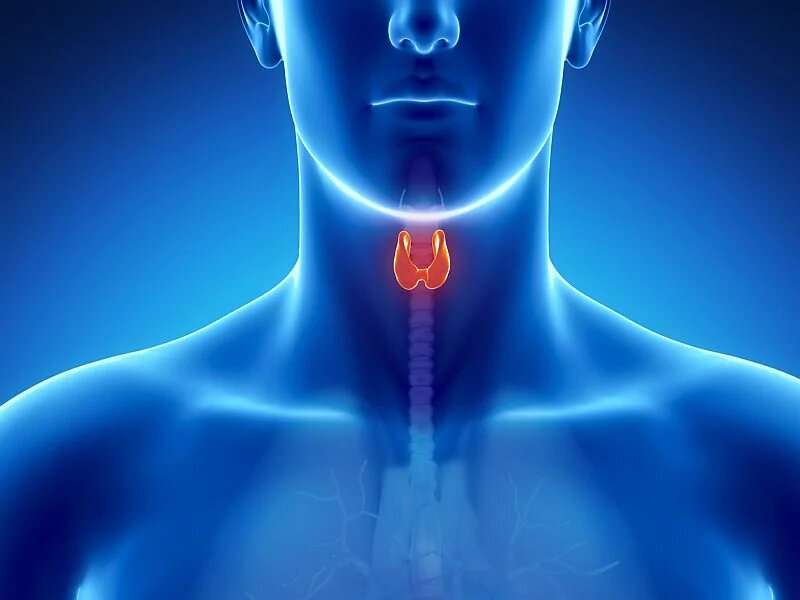Inflammation linked to thyroid dysfunction in psoriasis patients

(HealthDay)—While the rate of thyroid dysfunction among patients with psoriasis generally is not higher than expected, psoriasis in patients with thyroid dysfunction is more clinically severe and serum levels of C-reactive protein (CRP) are higher, according to a study published online Dec. 5 in the Journal of Dermatology.
Kaoru Namiki, from the Teikyo University School of Medicine in Tokyo, and colleagues investigated the prevalence of thyroid dysfunction among 85 patients (54 men) with psoriasis vulgaris (51 patients), psoriatic arthritis (23 patients), and generalized pustular psoriasis (11 patients). Additionally, the authors assessed the relationship between the severity of psoriasis and serum free triiodothyronine (fT3), free thyroxine, and thyroid-stimulating hormone levels.
The researchers found that 14 percent of psoriatic patients had thyroid dysfunction. The percentage of patients with thyroid dysfunction was the highest in those with generalized pustular psoriasis (45 percent) compared with psoriatic arthritis (13 percent) and psoriasis vulgaris (8 percent). Psoriasis Area and Severity Index scores were significantly higher among patients with thyroid dysfunction, as were serum CRP levels, compared with patients without thyroid dysfunction. There was a significant negative correlation noted between serum CRP levels and fT3.
"Our data indicate that thyroid dysfunction in patients with psoriasis is associated with inflammation caused by psoriasis," the authors write. "Further accumulation of cases is needed to clarify the association between psoriasis and thyroid dysfunction."
More information: Abstract/Full Text (subscription or payment may be required)
Copyright © 2019 HealthDay. All rights reserved.


















